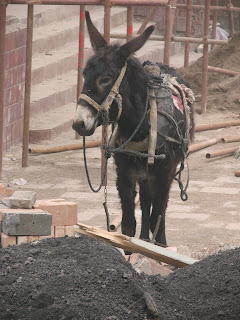My friend, poet and fellow blogger,
Jill Jones, over at
http://www.inblogs.net/rubystreet , tagged me to respond to a meme which read as follows:
Tom Beckett tagged me (Jill Jones) with this meme:
"I now propose a new tag: Things which one has read and has been influenced by which are not confined to those paper-bound vessels of the printed word we refer to as books. Let's call these Non-Books. Or maybe Impossible Books. Or Limen Books? It's up to you."
My list (tonight - any other time it may be different):
1. sitting by the radio with my parents and brothers and sisters, listening to the rhythms of speech and the zany sound effects of
The Goon Show in the Fifties
2. coloured patterns of stained glass light falling on pious faces as the parishioners knelt
3. the sound of scuttling claws as rock crabs ran away exposed to sunlight
4. river water dripping off oars
5. stoned to the bones in an emergency ward with an attack of renal colic
6. the intimate feeling of a dental nurse leaning against my elbow on the arm of the chair when I was twelve, and I in my summer school shorts and nowhere to hide
7. the taste of stolen mulberries off a neighbourhood tree
My blog list has disappeared into the ether, so I can only issue the broadest of tags - to all you bloggers, particularly the poets, who would care to participate.














.JPG)





